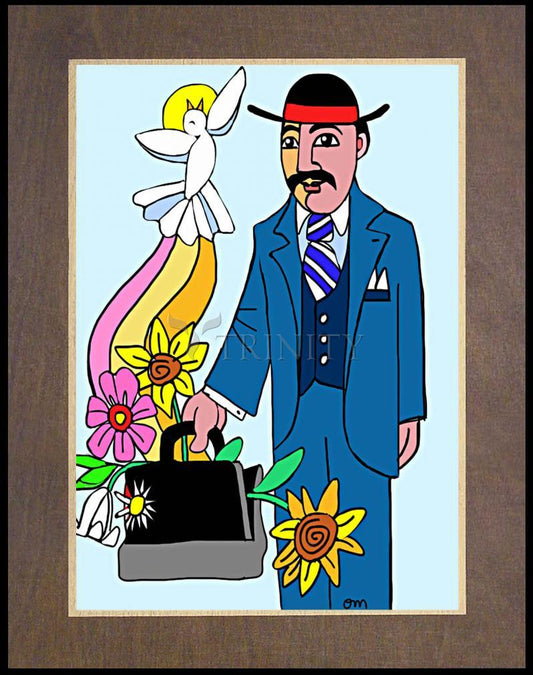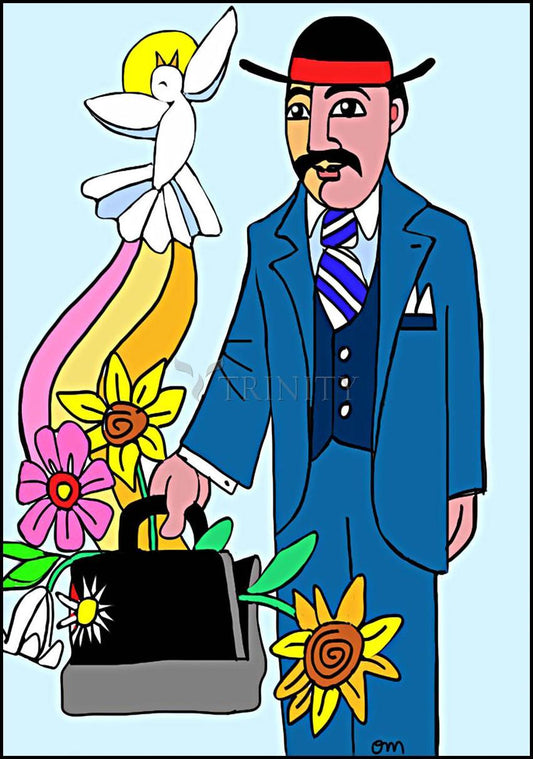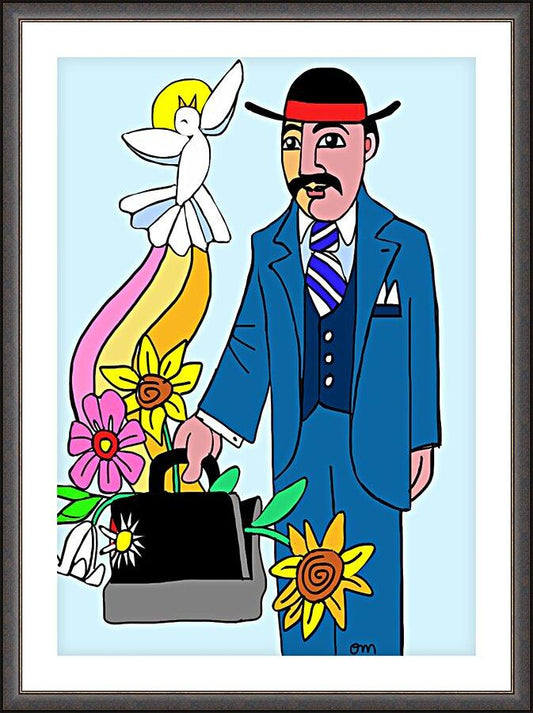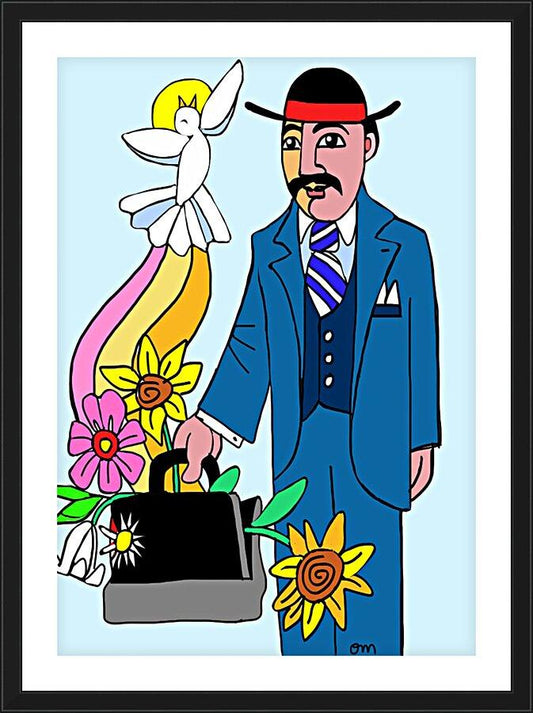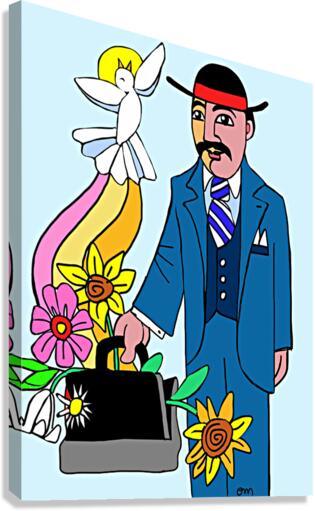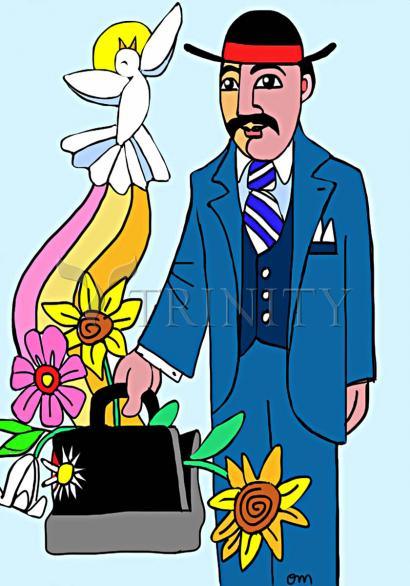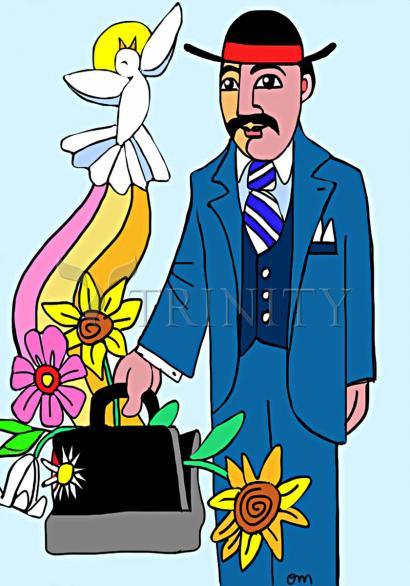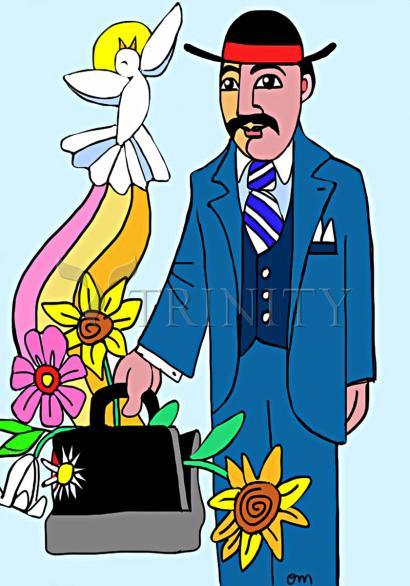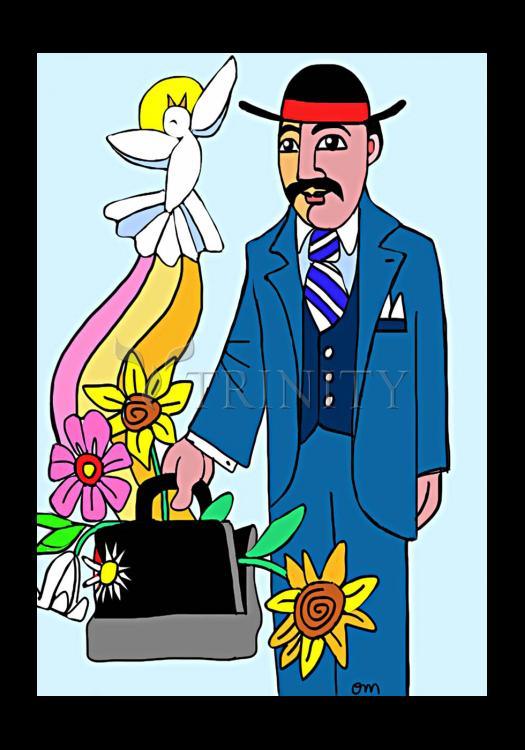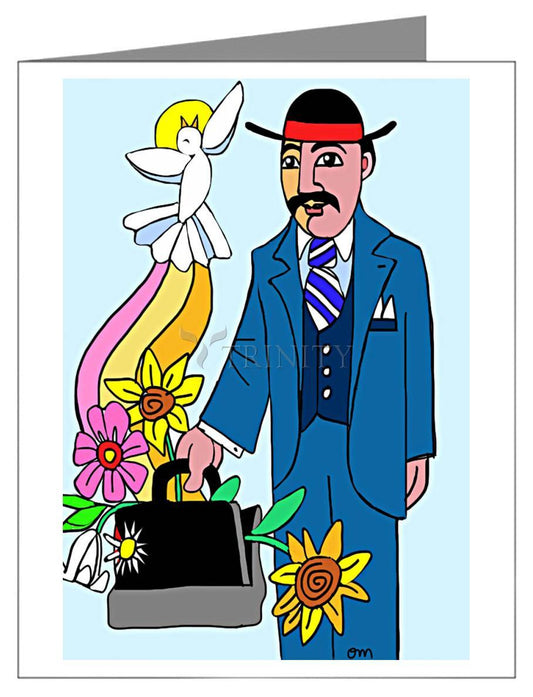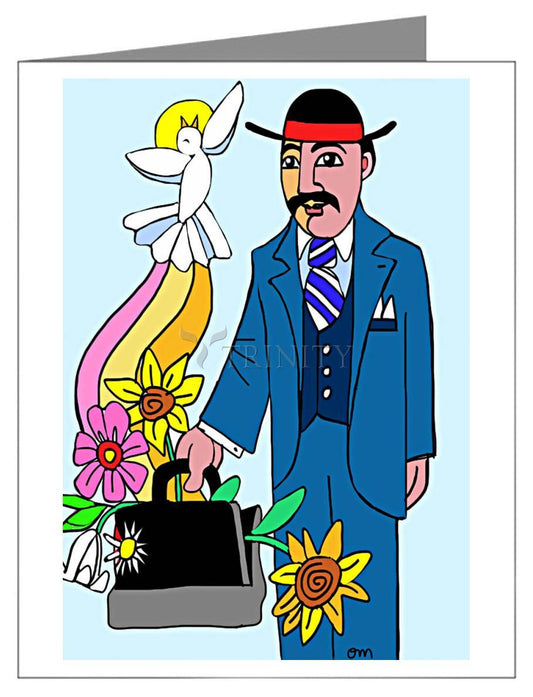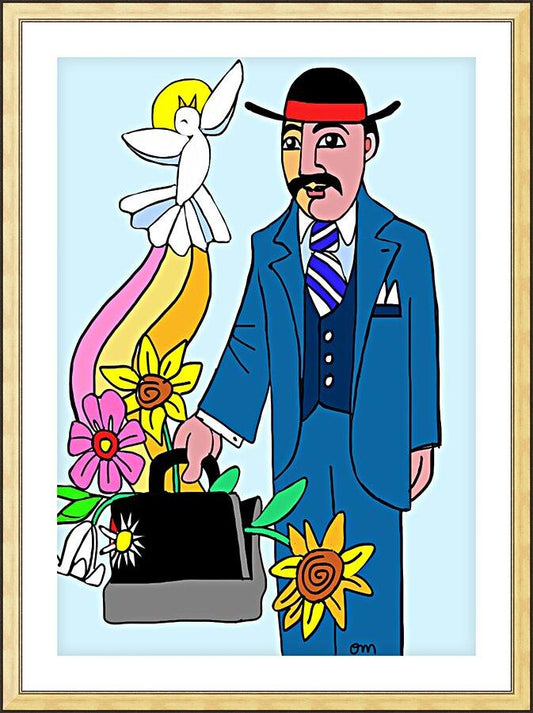Christianity has a long history of being involved in healthcare, especially of the poor. From the days of the early church, Christians have been taking care of the sick even when physicians and others have refused to do so. Wherever Christianity has spread, hospitals have followed. Part of the reason for this is probably the fact that Jesus Himself was a healer. Even beyond that, the ethics that Jesus taught"whatever you do to the least of these you do to Me"was a powerful motivation to serve the sick and the poor. Further, as background to all this, and unlike the Hellenistic-influenced world, Christianity has always affirmed the goodness and importance of the body, and thus the need to care for it.
Although the majority of Christians serving the poor and healing the sick remain largely unknown, José Gregorio Hernández is an exception. He is a major figure in the history of his native Venezuela and is remembered even today for both his medical skills, and his generosity and service to the poor.
José Gregorio Hernández was born in the town of Isnotú, Trujilo State, Venezuela, in the foothills of the Andes Mountains. His parents owned a general store, and his father was also an amateur physician"not at all uncommon in rural Venezuela in this period. People would come to him for treatment, and he would diagnose their illnesses and prepare medicines for them. He was particularly skilled with herbal remedies. By all accounts, his skills were highly regarded in the Isnotú area.
Perhaps because of his father, José decided to pursue a medical career. He received his medical degree in 1888 from the Central University of Venezuela in Caracas, the most prestigious school in the country. Once he was licensed as a physician, the Venezuelan government awarded him a grant to pursue advanced medical studies in Europe. He traveled to the Pasteur Institute in Paris, where he studied bacteriology, microbiology, histology and physiology. He then returned to Venezuela and became one of the principal doctors at the Hospital José Maria Vargas.
Despite this early professional success, however, Dr. Hernández was not entirely sure about his calling to be a physician. A devout Catholic, Hernández evidently believed that if he was to dedicate his life to serving God, his only choice was to join the clergy. (Within the Catholic Church, the concept of "vocation," or a calling by God on your life, was restricted to the clergy: if you had a vocation, it meant that you were "called" to be a priest, monk, or nun.)
Accordingly, Hernández attempted twice to become a monk in very strict monasteries. In1908, he spent 10 months in the Monastery of Lucca in Italy before his frail health forced him to return home. Then in 1913, he returned to Italy to continue his preparations for the cloister in the Latin America Pio School in Rome. Once again, however, poor health forced him to return to Venezuela.
Around these trips to Italy, Hernández practiced medicine in Caracas. He became known as the "doctor of the poor." He responded to any call for help, whether the patient was rich or poor. He treated the poor for free and at times even bought medicine for them with his own money.
Along with practicing medicine, Hernández taught advanced medicine through his hospital in Caracas. This led him to publish The Elements of Bacteriology in 1906. He also continued his medical research. His most important finding was that malaria, a disease caused by a mosquito-borne parasite, could lead in later life to angina pectoris (also called simply "angina"). He published his research in a book entitled About the Angina Pectoris of Malaric Origin (1909).
His publications were not limited to medical topics, however. In keeping with his theological and philosophical interests, he published The Elements of Philosophy (1912).
In 1919, after attending Mass, Hernández stopped at a pharmacy to buy medicine for one of his patients in La Pastora, the colonial district in Caracas. Automobiles had only recently been introduced to Caracas and there were very few of them on the streets. Perhaps for this reason, Hernández did not look as he walked around a tram and stepped into the street. He was struck by a car, thrown, and hit his head on the stone curb on the street. He died instantly.
News of his death spread across the city. So many people wanted to show their respects that newspaper accounts of the day say that nearly every flower in the city was picked for funeral bouquets and wreaths. At the funeral, tens of thousands of people filled the square around the cathedral, and when his body was going to be placed in the hearse, a spontaneous cry rose from the crowd, "Dr. Hernández is ours!" The people took up the coffin and bore it on their shoulders to the cemetery.
The people of Venezuela have continued to revere the memory of José Gregorio Hernández. Candles were left at his grave regularly; in 1975 they caused a fire to break out on the grave. His body was subsequently moved to La Candelaria church in the center of Caracas. A Mass is held there daily in his honor at 6:00 PM.
In 1949, the church in Venezuela petitioned the Roman Catholic hierarchy to consider Hernández for sainthood. Pope John Paul II gave him the title "the Venerable" in 1986, a step on the road to beatification or canonization.1
José Gregorio Hernández was a wonderful example of a Christian who lived out his faith sacrificially, using his considerable gifts to help the poor and to advance medical knowledge and education. His dedication and desire to serve God informed his work as a physician and his service to the poor.
Yet this deep desire for God almost led him disastrously wrong. Like many sincere believers who want to serve God, he believed that the best way to do this was to join the clergy, perhaps because of the Catholic concept that the only vocations ("callings") were to the church. Had ill health not prevented him from joining a monastery, many poor people would not have received the medical care they needed, and much good would not have been done by Dr. Hernández. Fortunately, God overruled his mistake and sent him where his true vocation lay.
While we celebrate the good work that Dr. Hernández did as a physician and for the poor of Venezuela, we also need to note the lesson that God gives each of us a unique calling and purpose for our life, and that sometimes, serving God and following His call means not becoming part of the clergy but working in the "secular" realm where our gifts can do the most good for our neighbors.



